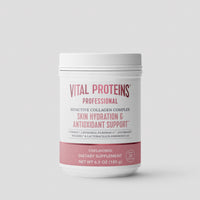Looking for a plant-based protein that’s easily digestible, packed with nutrients, free of gluten andPaleo-friendly? This effective and uber-nutritious protein has a big leg up on other plant-based proteins, mainly because of its nutritional benefits and digestibility. Here’s what you need to know about this plant-based Paleo protein.
Vital Note: This article has been made available for informational and educational purposes only. It is not intended to be a substitute for professional medical advice, diagnosis, or treatment. Always seek the advice of your physician or another qualified health provider with any questions you may have regarding a medical condition. Your licensed healthcare professional can best provide you with the diagnosis and treatment of any medical condition and assist you as well in deciding whether a dietary supplement will be a helpful addition to your regimen.
Are watermelon seeds bad for you?
As a child, you were probably told if you swallow a watermelon seed you’d start to grow a watermelon in your stomach, right? Well — obviously — this isn't the case. Watermelon seeds can actually be very good for you, and you should think twice before spitting them out. Watermelon seeds are actually rich in protein and other nutrients including B vitamins.

Do watermelon seeds have protein?
Yes, watermelon seeds are rich in protein and other nutrients, but there's a catch. To get the benefits, you shouldn’t eat them right out of the melon. They need to be shelled and sprouted in order to be fully beneficial, because the outer layer of the seeds is difficult to digest and contains anti-nutrients.
Lively note: Anti-nutrients are essentially self-defense mechanisms that plants employ to deter animals from eating their seeds. These anti-nutrients can negate the nutritional benefits of seeds, preventing you from absorbing their full spectrum of vitamins and minerals.
To do this, you can let them air dry fully or use a dehydrator.
When watermelon seeds are properly shelled and sprouted, they're nutritional powerhouses. Watermelon seed protein is high in B vitamins such as niacin, folate, thiamin, riboflavin, B6 and pantothenic acid. These vitamins are important for promoting a healthy metabolism and supporting healthy cellular development, leading to numerous benefits for those who are involved in a fitness routine.**
In addition to these B vitamins, watermelon seed protein is high in magnesium, a mineral that many people seek to include in their diets. Magnesium helps promote calmness, positive mood and muscle recovery.**
How much protein does a watermelon seed have?
Finally, and perhaps most importantly for weight lifters and fitness devotees, watermelon seed is a highly digestible plant-based protein.
Completely Paleo-friendly and gluten-free, it is a fantastic alternative to non-Paleo plant proteins, such as those sourced from beans, legumes and rice. Watermelon seed protein contains 30g of protein per cup.













